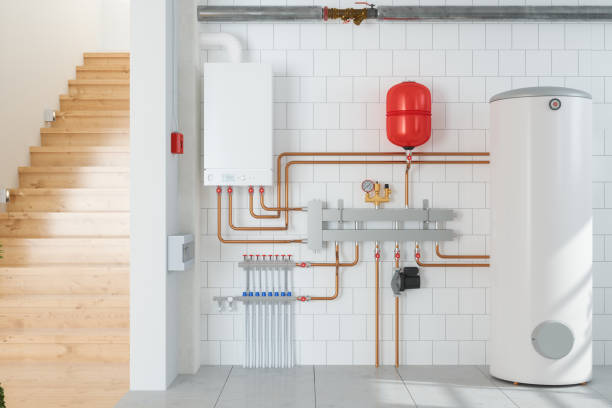7 Common Water Heater Problems and Solutions
Water heaters are an essential part of contemporary homes since they supply hot water for cleaning, cooking, and bathing. They are, nevertheless, susceptible to occasional malfunctions, just like any other item. You can avoid wasting time, money, or trouble by being aware of standard water heater issues and how to fix them. In this post, we’ll examine seven common problems with water heaters and provide workable fixes. If you’re in Milwaukee, WI, and encounter any issues with your water heater, don’t hesitate to reach out to professional Water Heater services in Milwaukee, WI, to ensure prompt and reliable assistance.
Daftar Isi
1. Sediment accumulation
Sediment, which includes dirt and minerals, can build up at the bottom of your water heater tank over time. This silt buildup raises the possibility of corrosion and damage to the heating elements, in addition to decreasing the efficiency of your water heater.
Solution: Regularly flushing your water heater might aid in preventing the accumulation of silt. To empty the tank, switch off the heater, attach a hose to the drain valve located at the bottom of the tank, and empty it. To keep your performance at its best, repeat this process every six months.
2. Pilot Light Issue
Pilot lights are used in gas-powered water heaters to start the burner and heat the water. You won’t have hot water if your water heater malfunctions and the pilot light goes out or doesn’t stay lit.
Solution: Make sure the pilot light is lighted by checking. If not, relight it according to the manufacturer’s directions. Should the pilot light persist in going out, a professional inspection and repair are necessary since there might be a problem with the thermocouple or gas supply.
3. Leaky Tank
Water damage and higher energy costs are two significant consequences of a leaking water heater tank. High water pressure, corrosive materials, or malfunctioning valves can all cause leaks.
Solution: It’s critical to take immediate action if you see any leaking indicators, such as water puddles around the heater’s base. After shutting off the heater’s gas, electricity, and water supplies, contact a plumber to evaluate the damage. The water heater may need to be replaced or repaired, depending on the degree of the damage.
4. Not a Hot Shower
Turning on the tap and discovering you don’t have any hot water is one of the most annoying issues with water heaters. Among other things, a broken thermostat, a tripped circuit breaker, or a malfunctioning heating element may be the cause of this issue.
Solution:
- Make sure your water heater’s thermostat is set correctly by first checking the settings.
- Check the heating elements for corrosion or damage to see if the settings are correct, but the water is still cold. If required, reset the circuit breaker and replace any broken parts.
- Consider contacting an expert for additional evaluation and repair if the issue continues.
5. Odd Sounds
Unusual noises from your water heater, such as popping, banging, or rumbling sounds, are frequently a sign of a heating element failure or sediment buildup.
Solution: Flush the water heater to get rid of any sediment that might be making the noise in order to solve this problem. Should the noises continue, there might be a more severe issue at hand, such as a broken pressure release valve or heating element. It is recommended that you seek the advice of a qualified plumber for an inspection and repair in such circumstances.
6. Water Rust
Corrosion within your water heater tank may be the cause of any rusty or discolored water that comes from your hot water taps. Rusty water may be a sign that your water heater is getting close to the end of its useful life and can also discolor your clothes and fixtures.
Solution: To get rid of any sediment or rust accumulation that might be the source of the discoloration, flush the water heater. Should the issue continue, it’s probable that the tank itself will be corroded and will require replacement. Speak with a plumber to determine the best course of action and to evaluate the situation.
7. Exorbitant Energy Expenses
Your water heater may need to run more efficiently if you see an unusually high energy bill. Older equipment, malfunctioning heating components, and silt accumulation are familiar sources of energy inefficiency.
First, cleanse the water heater to get rid of any sediment that might be lowering its effectiveness. To reduce heat loss, think about switching to a more energy-efficient model or wrapping the tank with insulation. Over time, routine maintenance can also help your water heater operate more efficiently and save on energy expenditures. Examples of routine maintenance include inspecting and replacing heating elements as needed.
To sum up,
You can prolong the life of your water heater and keep a consistent supply of hot water by being aware of common issues and how to fix them. You can make sure that your home is warm and functioning all year round by routinely checking and maintaining your water heater, taking care of problems as soon as they arise, and calling in experts when necessary.



